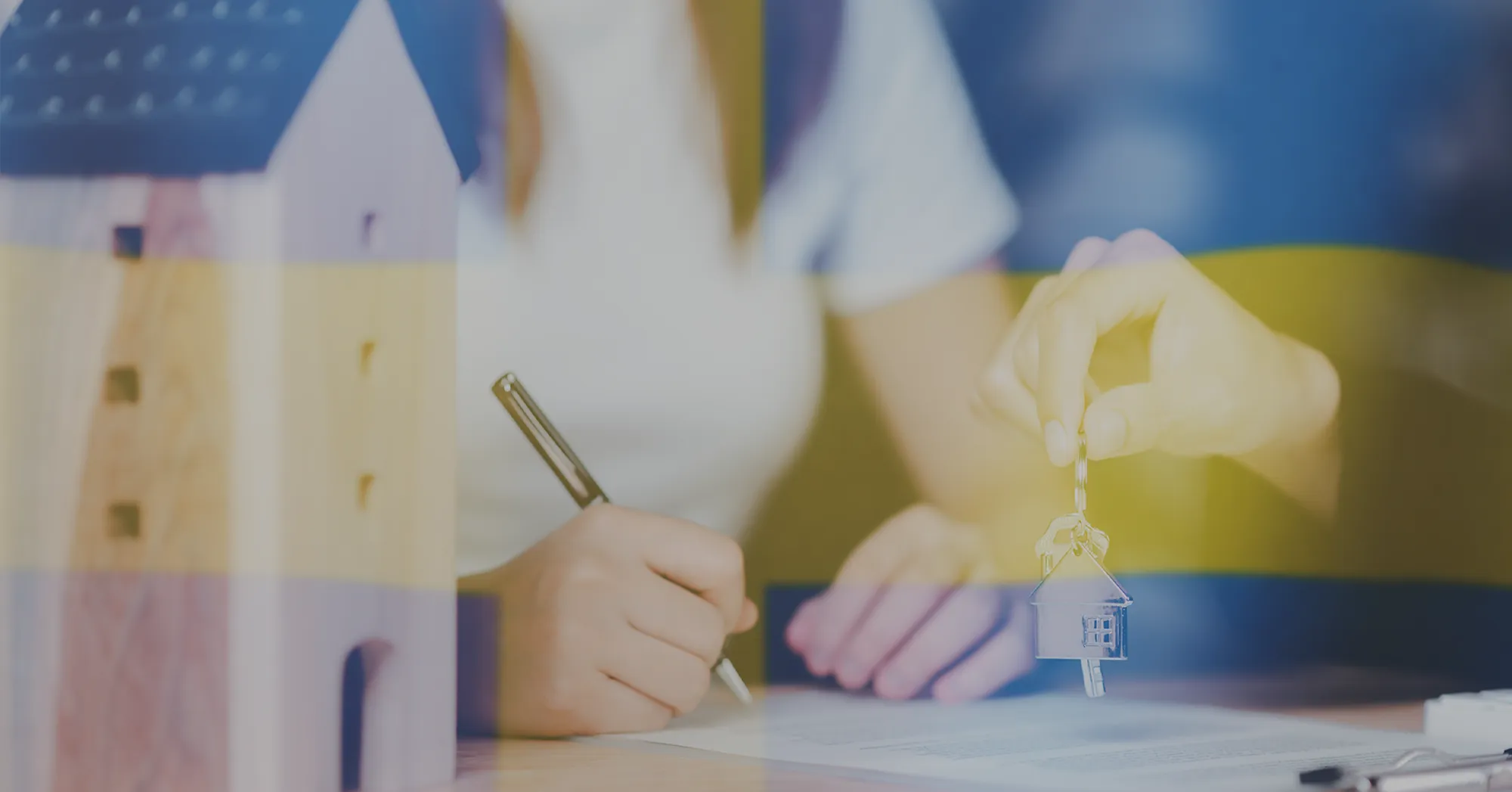Article series vol. 4/4
Medita Communication, which represents the Worldcom PR Group in Finland, asked its international communication agency partners how critical they and their key clients consider the demands for sustainable business in their markets and how sustainability expectations are reflected in corporate communications.
Swedish real estate sector’s sustainability faces headwinds
Together with its Worldcom partners, Medita has been monitoring the development of corporate social responsibility in Finland, Sweden, Great Britain, and German-speaking Central Europe. The last part in this series of articles focuses on Sweden and especially on the real estate and construction industry, which has fallen into turmoil. The company interviews were conducted at the end of 2022, and the industry’s prospects have been assessed a year later, when the industry is still affected by inflation and high interest rates. Will ESG withstand the headwinds?
The situational review below of the ESG and sustainability communications preparedness of companies in Sweden was made by our previous Worldcom partner Oxenstierna Kommunikation, on behalf of Medita Communication. Thank you very much for your input!
Summary made by:
Tiinu Wuolio, Medita Communication and translated by Edward Crockford, Crockford Communications
Example: Swedish real estate fund – Sustainability decisive in property investments
According to a management professional at a real estate fund active in Sweden, sustainability is vital in business today. The ESG factors are discussed at an early stage before each investment.
“The reason for this is very basic: they reduce the risk. It will be possible to obtain higher rents from tenants, the value of the real estate will be higher, and the risks of having to make expensive renovations will be lower.”
In addition, legal requirements and those of EU Taxonomy need to be fulfilled. Large companies need dedicated professionals to put these procedures in place. ESG is also crucial for recruiting talent, not to mention the investors who would not invest in a project if the organisation were not at the forefront of sustainability.
For investors, such as insurance companies, sustainability is very important. Trustworthy financiers and construction companies with good reputations are sought for real estate projects.
Greenwashing not a big issue in today’s real estate business
According to the expert, the sustainability of real estate investments today also withstands the critical scrutiny of the media.
“I don’t think greenwashing is a big issue in this line of business. The EU requirements have made it harder to greenwash, as the rules are quite clear, and all the competitors are in line with the rules. I could not name a single competitor that I think might be suspicious in this regard.”
The decision-maker at the real estate fund is interested in exploring more socially sustainable financing models. He thinks this will be important soon because social problems in some parts of major cities pose risks for real estate investors as well. Standards and recommendations are still needed for real estate risk management in these areas.
Example: Swedish installation service company – Focus on social and supply chain responsibility
According to the sustainability manager of a major Swedish installation service company, environmental sustainability is already working well in terms of issues related to the climate, energy, and resources. These issues represent specific demands of clients and are consequently high priorities for the company.
“A lot of our business involves using energy more efficiently and automating streams in buildings to make them more effective in the use of energy, water, and air. Today this is very integrated with the way we work, from the beginning and throughout the project,” the manager says.
“Our clients have more and more expectations regarding sustainability, but investors especially read our sustainability reports most thoroughly. As for greenwashing in general, it has decreased because of more detailed reporting requirements.”
More sustainable materials can already be found, and better alternatives for logistics are available. Recycling is still a big challenge in the construction business, but also an area where significant improvement could be achieved.
“We have always focused a lot on occupational health and safety, and it will always be a high priority. Then there is the issue of diversity in the workforce, where there is still a lot to be done in terms of attracting more women and employees from other backgrounds,” the manager analyses.
According to this expert, a sustainable corporate image is becoming increasingly important especially for new recruits among younger people.
“People simply don’t want to work for a ‘dirty’ company if they are able to choose.”
Example: Swedish real estate company – Requirements of the financial sector guide sustainability work
The sustainability manager of a Swedish real estate company that specialises in student housing estimates that the company is already at a good level in terms of sustainable business.
“Sustainability is perhaps the most important part of the foundation on which our company stands, as we focus on wood buildings and sustainable building materials only. We rely on external consultants to examine and demonstrate that our high sustainability standards are carried out in practice.”
When it comes to developing sustainable business within the company, however, this is mostly done using internal resources.
The most critical stakeholders are primarily investors and ultimately the entire financial sector, whose demands drive the sustainability work and climate reporting of companies, the use of energy and water, and the awarding of green loans. So far, the Swedish real estate company’s investments in sustainable development have not affected its market value, as investors, financiers and insurance companies are mostly interested in managing risks. For example, insurance companies are keen to discuss fire safety and the risks associated with wood buildings.
“At the time of the outbreak of war in Ukraine, financiers seemed to be more concerned with securing cash flow for a short period, but soon they focused on sustainability again,” the manager states.
The social dimension of sustainability is realised by maintaining dialogue with representatives of the municipalities in which the company’s buildings are situated. In addition, sustainability issues are discussed with the company’s staff every quarter. The tenants themselves, however, are not so demanding in terms of sustainability. Even if they are typically young people, they settle for waste sorting and a newsletter that provides information about sustainability. Through its projects, the company aims to support the wellbeing of its tenants and reduce resident turnover.
Example: Swedish real estate cooperative – All sustainability work is long term
The sustainability manager of a large Swedish real estate cooperative has noticed the growing importance of social sustainability in terms of diversity lately. As a real estate company owned by its members, sustainability work is part of the organisation’s soul. It simply has no choice but to be socially sustainable.
“These issues are harder to measure and are often on a more social level, for example meeting your neighbours regularly and building a stronger community,” the manager says. Even if there always are some issues to resolve, at least waste management works quite well.
For this sustainability manager too, the most demanding stakeholder group comprises financiers, who are increasingly demanding more detailed sustainability reports, which is also a challenge for property managers.
“We have noticed that sustainability is beginning to cost. Small actions that don’t cost anything are not going to work anymore. But all sustainability work is long term, and we will get there,” the manager assures.
Sustainability an increasingly important competitive advantage also in the real estate sector
The business environment in the real estate and housing sector in Sweden has been turbulent lately, just as it has been also in many other European countries. The industry has suffered from inflation and rising interest rates, which have caused bankruptcies and paralysed housing sales and construction.
In addition, the government in Sweden has not particularly promoted sustainable development lately. Nevertheless, despite the headwinds, there are still leaders in the industry who are doing just that.
Annica Ånäs, CEO of Swedish developer Atrium Ljungberg AB, interviewed by journalist Martin Gelin for Bloomberg, pointed out that, “in a few years, nobody will be interested in buildings if they haven’t considered sustainability.” She is not alone.
Sustainability in the real estate business is becoming an increasingly important competitive advantage for customers and investors alike. The driving force is the so-called Brussels effect, i.e. the EU, which is working on a new bill that will increase comparability in the European market – the Corporate Sustainability Due Diligence Directive.
” When it enters into force, the directive will extend the responsibility for investigations further back in the value chain. This will also affect the real estate industry,” states Mattias Johansson, partner and certified public accountant at KPMG, in an article published on the Swedish real estate businesses website Fastighetssverige.








